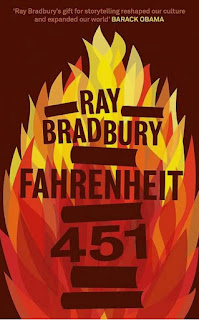This book covers a wide range of topics, most of which are connected to the idea of pleasure and the technologically driven society. Instead of putting out flames, Fireman burns down houses that contain books in this world. The work of a firefighter is quite different from what we have known and experienced.
The concept of equality is a delusion in which individuals' minds are equally tuned to prioritise pleasure over thought, utterly destroying their individuality and reducing them to a group of people with the same goal. The characters' lives in the book are so routine and dull that they are devoid of any unique emotions or thoughts.
The ability to think is destroyed by burning all the books and even people who rebel or seem unique to others are also burnt. We see them emotionally watching an old woman burn with her books. They relished the pleasure of burning books and hunting people and saw the entire process as a game. Firemen's historical details about them being distinguishing fire have even been altered and changed. Another figure, Beatty, provides insight into the past and how the world developed, revealing that people were the real cause of this "Hell" rather than any exterior force.
People's families are the walls they refer to as their "parlour," and they detest anything that has to do with emotions as it does not make them "happy." The idea of happiness is selfish as it is bound to themselves and the instant happiness that they receive.
The names of technological objects are replaced with names that represent elements of nature, such as mechanical hounds, seashells, beetles, and so forth. The phoenix bird is compared to humans in a passage because both species create fires; the only distinction is that man starts the fire on purpose.
An additional element that stalks the characters—which they are unaware of—is loneliness and isolation. Despite being married for a year, the main character Montag and his spouse lack emotional ties, which makes them feel lonely even while they are together. When the discussion of children is brought up by ladies they mention a very disturbing idea of burden, because the kids impede their happiness, they are also viewed as a "burden." The lack of pain or sadness at the loss of family members also makes them seem so heartless.
This book serves as a warning to a future world where technology and human selfishness have taken over and turned Earth into a "Hell on Earth."







No comments:
Post a Comment